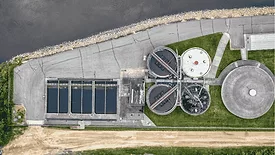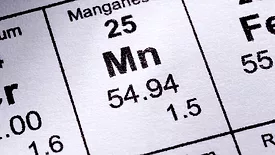Home » Keywords: » water quality
Items Tagged with 'water quality'
ARTICLES
The affected waterways include the Paskamansett River, Weweantic River, Salisbury Plain River, Hedges Pond, Seine Pond, and Bennetts Brook.
Read More
EPA Orders Inspections of Nearly 100 LADWP Water Reservoirs
Federal review finds maintenance gaps but no immediate water quality threat
Read More
EPA Moves Against Grocery Chains Over Illegal Disinfectants in Southwest Stores
The settlement resolves violations of the Federal Insecticide, Fungicide, and Rodenticide Act (FIFRA).
Read More
EPA Responds to Claims Over “Forever Chemical” Pesticides with Clarification and Context
Agency says approved compounds are not PFAS, while critics call for clearer oversight amid rising public concern
Read More
EPA Commits $3 Billion in New Funding to Tackle Lead in Drinking Water
Agency also redistributes $1.1 billion in unused funds as updated data reveals fewer lead service lines than previously thought
Read More
Texas Sent $223 Million to Rural Communities to Fix Water Infrastructure
Two years ago, Texas voters overwhelmingly approved the creation of the Texas Water Fund
Read More
Birchtech Teams Up with CEC to Expand Water Testing Services for Utilities Nationwide
Partnership to accelerate water testing for utilities
Read More
Santee Sioux Nation Remains Under Manganese Drinking Water Advisory
In effect until follow-up testing confirms manganese levels have fallen
Read More
Dig deeper into the drilling and water supply industry!
Build your knowledge with The Driller, covering the people, equipment and technologies across drilling markets.
SIGN UP NOWCopyright ©2026. All Rights Reserved BNP Media.
Design, CMS, Hosting & Web Development :: ePublishing







.webp?height=168&t=1762313000&width=275)
.webp?height=168&t=1761182710&width=275)

